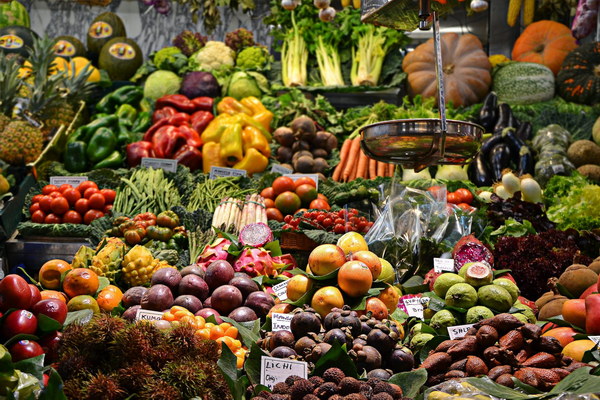Does Corydalis Protect Your Stomach Exploring the Benefits of Corydalis for Gastric Health
Corydalis, also known as Yan Hu Suo in traditional Chinese medicine, has long been revered for its medicinal properties. But does Corydalis really protect your stomach? In this article, we will delve into the potential benefits of Corydalis for gastric health and explore how it can contribute to a healthier digestive system.
Corydalis is a genus of about 400-500 species of perennial herbs, predominantly found in Asia and the Mediterranean region. The plant contains various alkaloids, which are known for their analgesic, anti-inflammatory, and sedative effects. In traditional Chinese medicine, Corydalis has been used for centuries to treat a wide range of conditions, including stomach pain, menstrual disorders, and neuralgia.
The question of whether Corydalis can protect your stomach lies in its ability to alleviate gastrointestinal discomfort and promote healing. Here are some ways Corydalis may contribute to a healthier stomach:
1. Analgesic Properties: Corydalis alkaloids have been shown to have analgesic effects, which means they can help reduce pain, including that associated with stomach ulcers, gastritis, and other gastrointestinal disorders.
2. Anti-inflammatory Effects: Chronic inflammation of the stomach lining can lead to conditions such as gastritis and peptic ulcers. Corydalis contains compounds that have anti-inflammatory properties, which may help reduce inflammation and alleviate symptoms associated with these conditions.
3. Sedative Effects: Stress and anxiety can exacerbate gastrointestinal problems. Corydalis has sedative effects, which may help alleviate stress and anxiety, leading to a healthier stomach.
4. Antioxidant Activity: Corydalis contains antioxidants that can protect the stomach lining from oxidative damage, which may contribute to the development of stomach ulcers and other gastrointestinal issues.
5. Promoting Healing: Some studies suggest that Corydalis can promote the healing of stomach ulcers and reduce the risk of recurrence. This may be due to its analgesic, anti-inflammatory, and antioxidant properties.
While the benefits of Corydalis for gastric health seem promising, it is important to consider the following points:
1. Consult with a Healthcare Professional: Before starting any new treatment, it is crucial to consult with a healthcare professional, especially if you have pre-existing health conditions or are taking other medications.
2. Quality of Corydalis Products: Ensure that the Corydalis supplements or extracts you are using are of high quality and contain the appropriate dosage of active compounds.

3. Side Effects: Corydalis may cause side effects in some individuals, such as nausea, vomiting, or allergic reactions. If you experience any adverse effects, discontinue use and consult with a healthcare professional.
4. Interaction with Other Medications: Corydalis may interact with certain medications, including blood thinners and antidepressants. Always discuss your medication regimen with a healthcare professional before incorporating Corydalis into your treatment plan.
In conclusion, Corydalis may offer several benefits for gastric health, including analgesic, anti-inflammatory, and sedative effects. However, more research is needed to fully understand its potential as a treatment for gastrointestinal disorders. As always, it is essential to consult with a healthcare professional before starting any new treatment, especially if you have pre-existing health conditions or are taking other medications.









